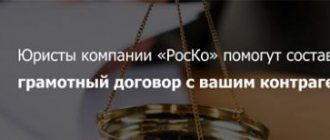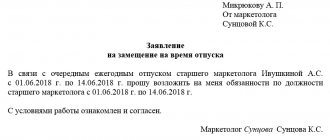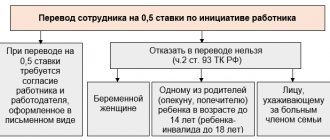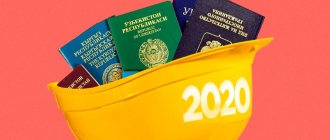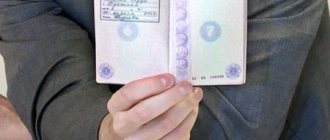The legal status of foreign citizens is determined by the laws set out in the Constitution of the Russian Federation. If federal laws or international agreements do not provide for any other provisions, then they have the same rights and bear the same responsibilities as Russians.
Constitution of the Russian Federation
The “Declaration of Human Rights”, proclaimed by the UN in 1985, ensures fundamental human rights (as provided for in International Human Rights Treaties), including those guaranteed to non-citizens. Covenants are legally binding instruments that require each state that ratifies them to protect certain human rights for all persons within its territory and subject to its jurisdiction.
Federal Law 115 on the legal status of foreign citizens in the Russian Federation can be downloaded here.
Legal status of foreigners on the territory of the Russian Federation
The Declaration provides guidance to States as they develop and implement laws designed to protect the dignity and freedom of each individual person. There are certain inalienable rights for all people, regardless of citizenship or nationality, as set out in the 1948 Universal Declaration of Human Rights. Organizations such as the UN Committee on the Elimination of Racial Discrimination play a key role in helping and protecting non-citizens around the world.
What does legal status entail?
The fundamental state law of the Russian Federation strictly defines the rights and obligations of foreign citizens.
Legal status provides:
- Equal status before the law regardless of any social, national, religious, professional, economic and similar factors.
- The Russian Federation has the right to establish certain restrictions or additional requirements for citizens from countries with similar restrictions and requirements.
- The rights and interests of Russians should not be infringed for the sake of the interests and rights of foreigners, which is clarified by the relevant law.
- Compliance with the laws of the Russian Federation is a necessary condition. According to the documents issued, for certain personal or business reasons, those coming to Russia can move freely around the country, but excluding territories that require special permission to visit.
A number of exceptions limit the actions of migrants. They can not:
- apply for state (municipal) positions;
- have the right to vote;
- be called up for state military service (there is the possibility of contract service);
- be a member of the crew of a ship flying a national flag or another vessel operated in the non-commercial sector;
- serve in enterprises or institutions providing security related to classified information, radioactive and nuclear products.
Which national rights correspond to the Vienna Convention
The International Convention on Road Traffic defines the features that a driver’s license of states that have acceded to this treaty must have, namely:
- The driver's license must be a document.
- the certificate is printed in the language or languages determined by the competent authority that issues the document; however, it bears the title "permis de conduire" in French, which may or may not be accompanied by the title "Driving License" in other languages, and the name and/or distinguishing sign of the country in which the license is issued.
- Entries made on the certificate are made either only in letters of the Latin alphabet or in words, or are repeated in the same way.
- The certificate must contain the following information; this information is numbered from 1 to 11: last name
- First and middle name
- Date and place of birth
- location
- authority that issued the certificate
- date and place of issue of the certificate
- expiration date of the certificate
- ID number
- signature and/or stamp or seal of the authority that issued the certificate
- owner's signature
- category or categories, or subcategories of vehicles to which this certificate applies, indicating the date of issue of the certificate and expiration dates for each of these categories.
Thus, you can exchange a foreign license for a Russian one without undergoing training at a driving school, passing the necessary exams, provided that the foreign driving license complies with the Vienna Convention and the above requirements.
Don't miss new useful publications
We will tell you about the intricacies of the legislation, help you understand it and tell you what to do in controversial situations.
Categories of foreigners
A foreign citizen is a person who is not a national of the host country (Russia) in which he temporarily resides. His identity is verified by a national passport or other document recognized by the Russian Federation. However, the exact definition depends on the context. Foreigners are differentiated into categories depending on the purpose of their stay.
Types of foreign citizens are those who:
- stays temporarily;
- resides temporarily;
- resides permanently.
These statuses provide different opportunities, in particular, different periods of stay on the territory of the Russian Federation.
Persons in the first category cannot apply for a residence permit or citizenship.
More information about the legal status of foreigners in Russia can be found in the video below.
Migration legislation is related to all rights: civil, labor, tax, administrative, international. This means that a foreign citizen has equal rights with Russians, but migration rules limit the temporary residence permit only to the region where the person is registered. Migrants are required to comply with the conditions of their status.
Change in migration status
Obtaining temporary residence permit, residence permit or Russian citizenship
The position of the migration authorities: when changing the migration status of an employee, it is necessary to dismiss the employee in the previous migration status and hire him in a new migration status, notifying the migration authorities of each of your actions.
Position of the labor inspectorate: when changing the migration status of an employee, there is no need to terminate the employment contract, since there are no grounds for dismissal. In addition, a foreign employee may refuse to resign himself, as he may lose corporate bonuses, accumulated vacation, etc.
Experts recommend adhering to the position of the migration authorities
Obtaining a temporary residence permit by an employee - VKS
Russian legislation does not provide for the combination of the status of a HQS and a temporary resident. Experts recommend canceling the work permit of a HQS immediately after receiving a temporary residence permit.
Special categories
People come to the Russian Federation for a specific purpose. For the sake of reuniting with family or, for example, for work or study. The reason for stay is the purpose of arrival, for which the migrant receives temporary residence status (with a visa or visa-free), permission is recorded in the form of a mark in the passport, or permanent residence (has nothing to do with citizenship, but provides for some conditions that are due to citizens, including social benefits and pensions).
Refugee status
Special statuses that foreign citizens may have:
- Diplomatic is a form of legal immunity that guarantees authorized persons inviolability of property, tax exemption, immunity from lawsuits or prosecution in accordance with the laws of the host country. Modern diplomatic immunity was codified as international law in the Vienna Convention on Diplomatic Relations in 1961.
- Highly qualified specialists who are not subject to the quota system and obtaining a work visa for them is a simple and quick process. It is valid for three years and can be extended for a further three years within 30 days before the current visa expires.
- Refugee status is a person who is forced to cross national borders and has no way of returning home safely. To receive it, the bearer must submit an application for asylum. While awaiting a decision, he is in the status of an asylum seeker. Once a displaced person is granted refugee status, they enjoy certain rights agreed to in the 1951 Refugee Convention (not all countries have signed and ratified this convention).
Remote work for foreign citizens
According to tax legislation, a foreign citizen who stays outside the Russian Federation for a long time loses his tax resident status and the personal income tax rate for him becomes 30% (instead of 13% or 15%).
Migration consequences (if staying more than 6 months outside the Russian Federation) include the risk of revocation of a work permit or patent.
The legislation does not resolve the issue as to whether these are 6 months in a row, or in total during the calendar year. Experts recommend limiting a foreign worker’s stay outside Russia to six months during a calendar year. It should be noted that in practice such a measure is used extremely rarely by migration authorities.
As for administrative responsibility, if a foreign worker works on the basis of an employment contract, then, according to the position of the Ministry of Labor, in this case the employer cannot provide him with safe working conditions outside the Russian Federation. Therefore, the work of a foreign worker on the basis of an employment contract outside of Russia is prohibited.
In case of violation of this prohibition, there is a risk of bringing the employer to administrative liability. In such cases, experts recommend concluding a GPC agreement with foreign workers.
Legal regimes
The visa policy of the Russian Federation has a number of requirements. The provision of visas is based on bilateral or multilateral agreements. Today, the Russian Federation has agreements with many countries whose citizens are exempt from a visa or can apply for one online. In other cases, you must obtain a visa in advance from a diplomatic mission or visa center.
Visa to Russia
In total, citizens of 48 countries are not required to obtain a visa if their stay lasts no more than the visa waiver limit. However, “visa-free” foreigners are required to have a migration card. With the exception of representatives of Belarus, which has a special relationship with Russia, those eligible for visa-free travel cannot stay longer than 90 days (during any 180-day period).
- Temporary stay status refers to the presence of a foreigner in the country (with or without a visa) for 90 days, without issuing a temporary residence permit. Upon expiration of the status, the person will have to leave the country, unless such situations as visa extension (or visa-free residence), waiting to receive a temporary residence permit, employment as a highly qualified worker, or study are not considered.
- A temporary residence permit in the form of a mark in the national passport (or in the form of an independent document) refers to the status of a resident in the Russian Federation, of which he is not a citizen. It is issued in accordance with quotas determined by the government for a period of 3 years. Exclusive rights, outside the quota system, are enjoyed by citizens of other countries in cases provided for by law, such as, for example, highly qualified specialists.
Example of a temporary residence permit of the Russian Federation
- A residence permit is a document (migration card) that allows a person who does not have Russian citizenship to reside in the country for a fixed period. This permit is valid for 5 years, but can subsequently be extended for a similar period many times.
The threshold required is an extension of stay, which may be an intermediate step towards applying for permanent residence. Residence status is granted for a number of reasons, and the criteria for acceptance as a resident may change over time. It happens that government authorities refuse to apply for a residence permit (or temporary residence) on legal grounds.
This happens if:
- has an outstanding felony conviction;
- false information or false documents are provided;
- the person suffers from an (infectious) disease that poses a danger to other people.
Sample of a residence permit in Russia
Obtaining a residence permit
To obtain a residence permit, a foreigner must be granted temporary resident status, which is issued within the quota established by the Russian government, taking into account demographic and other factors, and distributed among federal regions. Some individuals may be given such permits outside the quotas: those who have invested in the economic development of the country or entered into a marriage with a Russian citizen.
At the same time, it can be canceled in a number of cases when residency or other obligations imposed on the status are not observed. For example, if a foreign citizen was within the host country for more than a certain period of time; in case of repeated violation of the rules of migration registration; constituted a threat to national security, or if a serious crime is committed, then the person becomes subject to deportation. In some cases, this status may be due to a certain type of employment or business. Holders have the same obligations as citizens of the Russian Federation regarding taxes.
Registration of residents is mandatory in the Russian Federation.
There are separate registers for foreign citizens (or stateless persons). Temporary residence is registered at the request of the employer or hotel administrator, and so on. The request must also be submitted within 7 days.
Changes in the practice of migration authorities
There have also been changes in the practice of the Moscow migration authorities:
Interview when submitting documents for an invitation
When the inviting party registers with the migration authorities, the general director (chief accountant) is required to come for an interview.
Place of birth of the foreign worker
Previously, the place of birth had to be indicated according to the foreign worker’s passport. Currently, it is necessary to request a birth certificate from a foreign worker if his passport indicates only the country of birth or the place of birth is not indicated.
Information about the education and places of work of highly qualified specialists (HQS)
Previously, migration authorities accepted documents without this information. Currently, the application for entry must include information about the highest level of education available and work experience over the past 10 years.
Approval of the relevant ministry for inviting foreign citizens
Previously, migration authorities required the approval of the relevant ministry to submit documents to invite HQS and maintenance workers from “open” countries. Currently, inviting foreign citizens from “open” countries does not require prior approval, regardless of the purpose of entry.
The process of attracting foreign highly qualified specialists from “closed countries” has now become somewhat more complicated. From now on, the entry of the employee and accompanying family members must be approved by the relevant ministry. Thus, the overall period for attracting highly qualified specialists has increased. Up to approximately 2.5 months.
Step-by-step plan for attracting HQS workers:
- Concluding an employment contract and submitting a notice;
- Coordination of the entry of the employee and family members with the relevant ministry;
- Submission of documents for obtaining a work permit;
- Submission of documents for issuing visa invitations to enter for employees and members of their families;
- Obtaining visas at the Russian visa center or Consulate;
- Entry into Russia and obtaining a work permit.
That is, now it is necessary to go through one more step - to coordinate the entry of the employee and his family members with the relevant ministry. This “complicated” regime is currently maintained, for example, for citizens of China and Israel.
[edit] Sources
- ↑ 1,01,1 “Constitution of the Russian Federation” // “Collection of Legislation of the Russian Federation”, 03.03.2014, N 9, art. 851.
- “Land Code of the Russian Federation” // “Rossiyskaya Gazeta”, N 211-212, 10.30.2001
- Federal Law “ON THE TURNOVER OF AGRICULTURAL LAND” // “Rossiyskaya Gazeta”, N 137, 07.27.2002
- Federal Law “On SEA PORTS IN THE RUSSIAN FEDERATION AND ON AMENDMENTS TO SOME LEGISLATIVE ACTS OF THE RUSSIAN FEDERATION” // “Rossiyskaya Gazeta”, N 254, 11/14/2007
- I.T. Bespalyi, V.V. Polyansky “STATE LAW OF THE RUSSIAN FEDERATION” / Samara, Samara University Publishing House, 2009, p. 254
- S.A. Avakyan “Constitutional Law of Russia” volume 1, second edition, Moscow, Lawyer, 2007, p. 706
